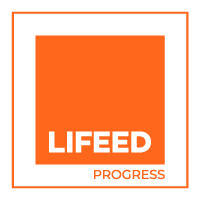
innovation
Lifeed for social inclusion beyond stereotypes

Lifeed’s division dedicated to special projects that aim to promote social inclusion and equality by bringing out and measuring the talents that are hidden among life experiences and in roles subject to cultural stereotypes, in order to fight discrimination against minorities at work.

Cultural stereotypes affecting people belonging to so-called minority and disadvantaged or underrepresented identity groups can explain many social and economic inequalities in the world of work. Even today, certain life roles and experiences, such as motherhood, fatherhood or caring for a family member, are still a basis for negative judgement and discrimination at work.
Lifeed’s research has shown that 70 per cent of people’s soft skills are developed in their personal roles and life experiences.
This finding is consistent with other scientific research that shows how the personal lives of professionals belonging to minorities – despite their wealth of experience – are not recognised and valued by employers1.
Companies risk wasting almost all the soft skills that people develop outside of work, following cultural stereotypes that see personal and work life as conflicting2 – rather than mutually enriching dimensions3. In fact, certain roles and life transitions are a reason for discrimination within organisations.

1. Hewlett, S. A., Luce, C. B., & West, C. (2005). Leadership in your midst. Harvard Business Review, 83(11), 74-82.
2. Ruderman, M. N., Ohlott, P. J., Panzer, K., & King, S. N. (2002). Benefits of multiple roles for managerial women. Academy of management Journal, 45(2), 369-386.
3. Sieber, S. D. (1974). Toward a theory of role accumulation. American sociological review, 567-578.

We involve organisations and associations involved in the protection
of minorities at work to conduct specific research through Lifeed
learning paths, in synergy with all the stakeholders involved.
The common goal is to promote equal opportunities and foster inclusion
by revealing the hidden value of people in their roles and life experience.